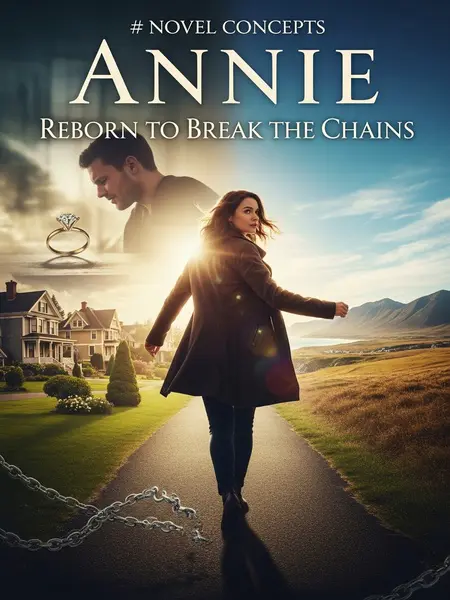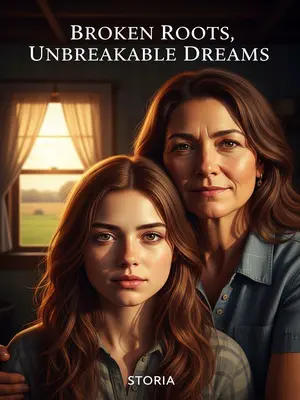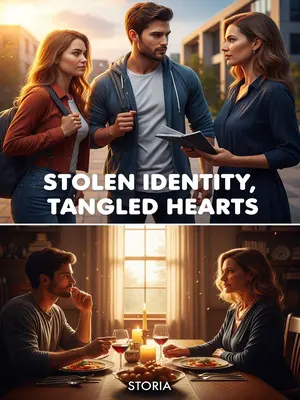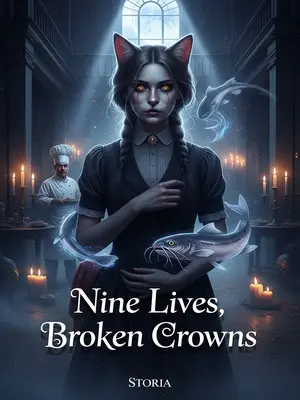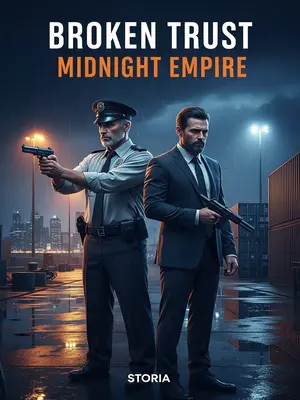Chapter 2: Shadows of the Past
Because in a few days, I was supposed to marry Jonathan. Soon after, I had a child, and I never returned to school. My wedding dress was barely out of its box, the feel of stiff satin still fresh on my skin, when I was learning to change diapers. The world shrank to the size of a crib and a kitchen sink.
Not long after Jonathan stayed at the university, he went to work at the county office. He wore crisp shirts and carried a leather briefcase, always out the door before sunrise. The neighbors called him “the rising star,” and I’d see his name mentioned in the local paper.
After that, distance separated us. I’d watch him leave through the window, his silhouette shrinking down the driveway. At night, the house felt bigger, emptier, the silence pressing in on me.
He steadily climbed the career ladder, and wherever he went, Lauren Sterling from the community theater would transfer there with her daughter. It was always the same story: a new job, a new town, and Lauren—always managing to show up wherever Jonathan landed. She had a knack for finding him, and Emmy, her little girl, would tag along, clutching her favorite stuffed bear. People whispered, but no one ever said anything out loud.
Meanwhile, I was confined to a small world, serving the in-laws and raising our child. My days blurred together—laundry, cooking, tending to my mother-in-law’s medicines, listening to the creak of the old house at night. Sometimes, I’d stare at my reflection in the hallway mirror, my hands numb from scrubbing, feeling like I was fading away.
I watched my son grow from clinging to me and babbling, to gradually distancing himself, step by step moving closer to Jonathan. He started calling for his father more than me, his little feet thumping down the hall. I tried to hold on, but the gap between us only widened, until I was left standing in the doorway, invisible.
Later, I only found out about his marriage to Lauren’s daughter after the wedding had already happened. No invitation, no phone call. Just silence. I found out the way people do these days—scrolling through my social media feed, stumbling on a wedding hashtag I didn’t recognize.
I saw it in an old friend’s photo—grainy, the colors washed out. I stared at the screen for hours, memorizing every detail. My son’s smile was wide, but there was something in his eyes I didn’t recognize.
In the picture, as he brought his wife coffee, Jonathan and Lauren stood beside him, smiling warmly. They looked like a family. I was just a stranger peering in from the outside.
After that, my son urged me more than once to get a divorce. Each time, his voice grew sharper, more impatient. I could feel him slipping away, word by word.
He said, “Mom, Dad’s suffered his whole life. If it wasn’t for you, Dad and Lauren would have been together years ago.”
I wanted to scream that I’d suffered too, but the words stuck in my throat.
“Mom, you and Dad are completely incompatible. Why can’t you just let go?”
I wondered if he’d ever really seen me at all, or if I’d always just been a shadow in his life.
Even my daughter-in-law refused to see me, not even once. She’d always text last-minute to cancel—"Sorry, too busy with work," or "Something came up, maybe next week." But what could I do? I was unwilling!
I clenched my fists at night, staring at the ceiling, replaying every sacrifice I’d ever made. I was unwilling, because when my in-laws were bedridden, I cared for them day and night, while he was out enjoying himself.
I remembered changing sheets, spooning soup, listening to their labored breathing. Jonathan was always "too busy." I was unwilling, because when my son was sick with a fever in the middle of the night, I was so anxious I didn’t even put on shoes. I grabbed my cell phone and called 911, then drove him to the ER myself, heart pounding the whole way, while Jonathan was taking another woman to piano lessons, teaching someone else’s daughter to do homework.
My feet ached that night from running through the hospital parking lot, but I didn’t feel it until morning. The only thing that mattered was getting my son help.
I was even more unwilling, because I gave up everything for this family, and in the end—All those years, all those choices, and still I was the villain.
He said.
They said.
Everyone said.
He and I were never suited for each other. Their voices echoed in my mind, a chorus of judgment.
